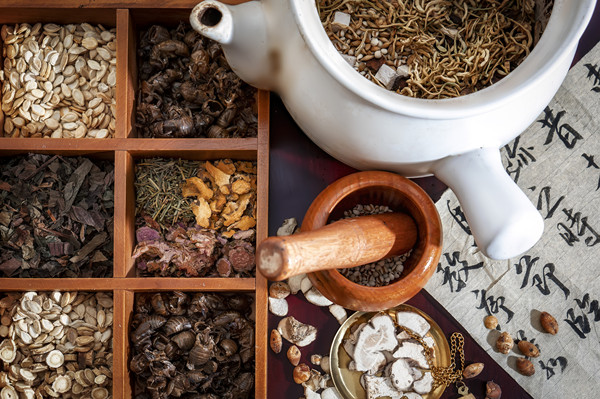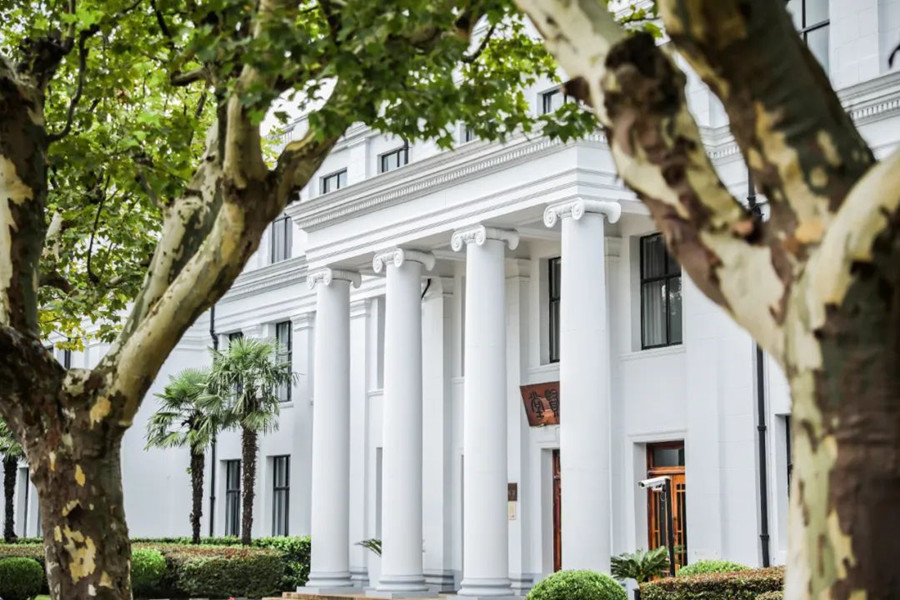Talking about traditional Chinese medicine

A selection of various kinds of traditional Chinese medicinal herbs. [Photo/VCG]
Though the core principles and techniques of traditional Chinese medicine (TCM) are thousands of years old, these medical practices are still commonly employed in China and are increasingly being adopted around the world.
In China, you'll find a confusing mix of modern and traditional medical practices. You may be confused, amused and even frightened by the traditional practices that you see and by the medical advice that you'll receive.
Qi and the yin-yang balance — TCM theory (中医理论, zhōng yī lǐ lùn)
The core belief of traditional Chinese medicine (中医, zhōng yī) is about the yin-yang (阴阳, yīn yáng) or qi balance in the body and its organs.
What is qi believed to be?
It is believed that qi is life energy and its flow in the body depends on the environment and what happens to the body. The balance of qi in the parts of the body depends on the flow of various kinds of qi and fluids (津液, jīn yè). Injury, physical suffering and a lack of proper food cause a qi deficiency 气虚 (qì xū).
Yin qi and yang qi
Most Chinese medicine practitioners think that there are many kinds of qi and the most basic kinds are yin qi (阴气, yīn qì) and yang qi (阳气, yáng qì).
Everything is a balance of yin and yang. Yin 阴 is female and dark. Yang 阳 is male and light. Females have more yin qi and males have more yang qi and as people age they lose qi.
The most common TCM techniques (中医技法, zhōng yī jì fǎ)
Acupuncture (针灸, zhēn jiǔ): This famous medical technique involves inserting needles at precise meridian points.
Fire cupping (拔火罐, bá huǒ guàn): This ancient practice has been practiced for hundreds and thousands of years. The Chinese style uses the acupuncture meridians. It is used to remove yang from the body and it is appropriate for conditions such as bronchitis (支气管炎, zhī qì guǎn yán), heat stroke (中暑, zhòng shǔ) and hot weather-related conditions.
Traditional herbology and medicines (中药, zhōng yào): In many ways, Chinese herbal medicine is similar to Western herbal medicine, though the emphasis is on promoting the yin-yang balance.
Massage (推拿, tuī ná): It seems like there are massage parlors everywhere and there are various styles that are all thought to be good for the health, some of which are more appreciated by Chinese than by foreigners.
Medicinal cuisine (药膳, yào shàn): The emphasis in this traditional method of meal preparations, special recipes and way of eating is to promote the yin-yang balance (阴阳平衡, yīn yáng píng héng).
Moxibustion (艾灸, ài jiǔ): This is another surprising technique and is used to add yang to the body. It is appropriate for women with birthing problems, older men and cold weather-related health issues.
Qigong (气功, qì gōng): Meditation and special exercises, such as qigong and tai chi also manipulate the qi balance and the body fluids in the body.
Source: China Highlights

